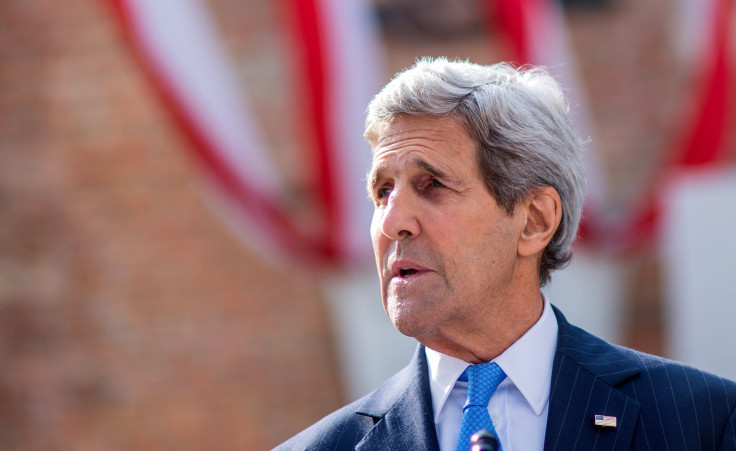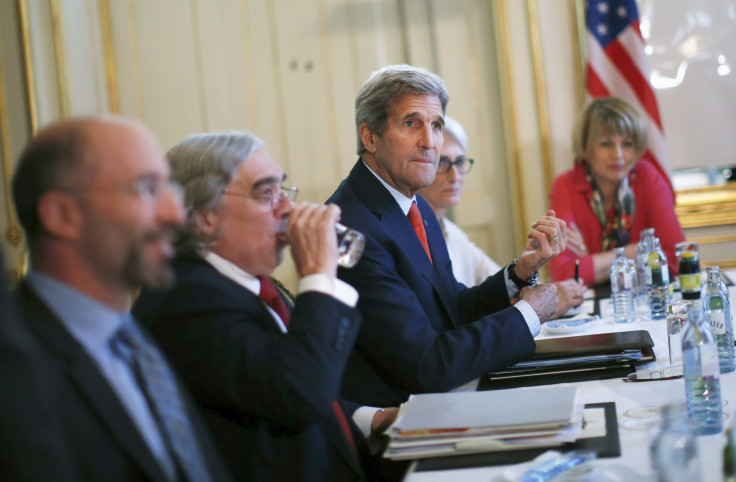John Kerry Tempers Iran Nuclear Talks Expectations

UPDATE 1:45 P.M. EDT: Israeli Prime Minister Benjamin Netanyahu Sunday warned the emerging deal between Iran and the West over Tehran's nuclear deal is more of a "breakdown" than a "breakthrough." He said world leaders are conceding more than they should and the emerging deal is worse than the pact signed by North Korea, which enabled Pyongyang to develop nuclear weapons.
"What's coming out of the nuclear talks in Vienna is not a breakthrough, it's a breakdown," Netanyahu said at the start of the weekly cabinet meeting, adding the deal "will pave Iran's way to produce the cores of many atomic bombs and it will also flood Iran with hundreds of millions of dollars that will serve it in its aggression and its mission of terror in the region and the world."
Original post:
WASHINGTON -- Secretary of State John Kerry sought to tamp down expectations that intense Iran nuclear talks taking places in Vienna, Austria will meet a successful resolution before the Tuesday deadline. But he did not yet rule out the possibility that a deal could be reached.
Kerry met Sunday with Iranian Foreign Minister Mohammad Javad Zarif, who has been leading the negotiations for his nation. The two have been engaged in intense discussions for the past week, trying to hammer out the details that would result in a compromise between the two nations and potentially offer some ability to normalize relations between Iran and the rest of the world. In a video posted to YouTube last week, Zarif said the two sides had “never been closer” to a deal. And he offered encouragement that trying to limit the Islamic State group could offer the two nations a common goal.
Kerry said the Tuesday deadline remains and he is hopeful a resolution will be reached by then. He warned that he wouldn't accept a bad deal just for the sake of reaching some sort of agreement. "We want a good agreement, only a good agreement and we’re not going to shave anywhere at the margins in order just to get an agreement," Kerry said. "Everybody is negotiating hard, that’s what makes this difficult."

Officials representing several governments have convened in Vienna for marathon talks ahead of the July 7 deadline to strike a final deal that would seek to stifle Iran’s production of nuclear weapons. Last week, the negotiators appeared nearing a compromise on a sticking point regarding the easing of sanctions currently in place against Iran by the United Nations.
"Many of the issues related to sanctions have been resolved, and there are four or five issues that remain, including the important topic of ensuring both sides' steps correspond to each other and happen at the same time," the ISNA agency quoted Iranian Deputy Foreign Minister Abbas Araqchi, according to Reuters.
The discussions are being conducted by a group known as P5+1, which includes Britain, China, France, Germany, Russia and the United States. Representatives from all nations were expected to be back in Vienna by Monday.
The talks have met strong opposition both within the United States and from strong allies in the Middle East, particularly Israel. Prime Minister Benjamin Netanyahu has been one of the most vocal critics of the talks, saying that a deal will result in Iran getting a nuclear weapon.
© Copyright IBTimes 2025. All rights reserved.






















